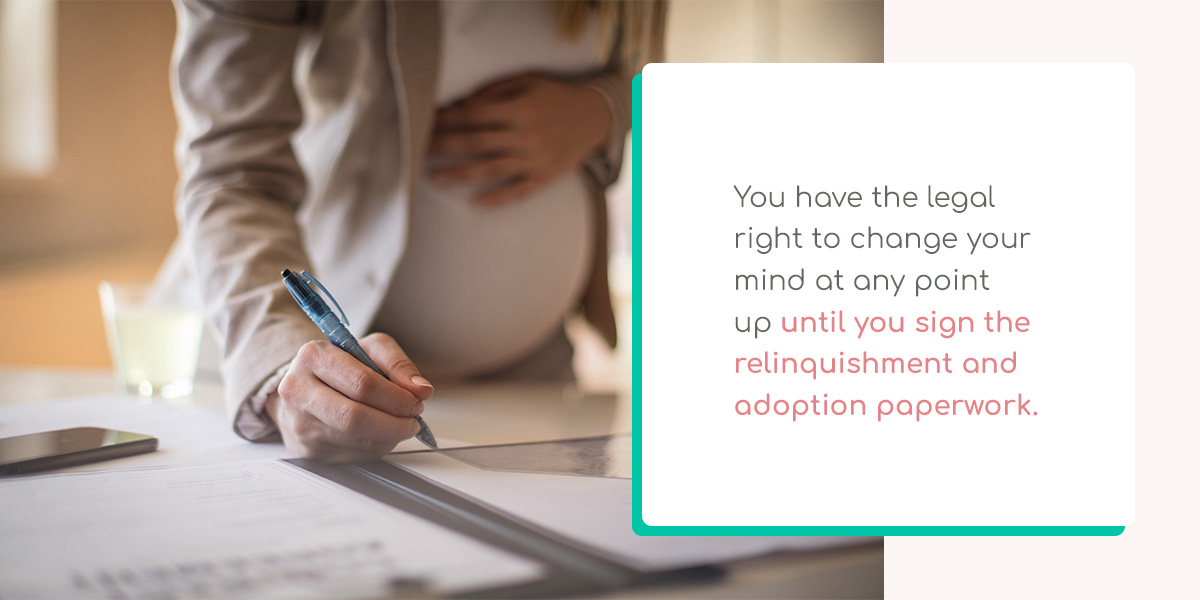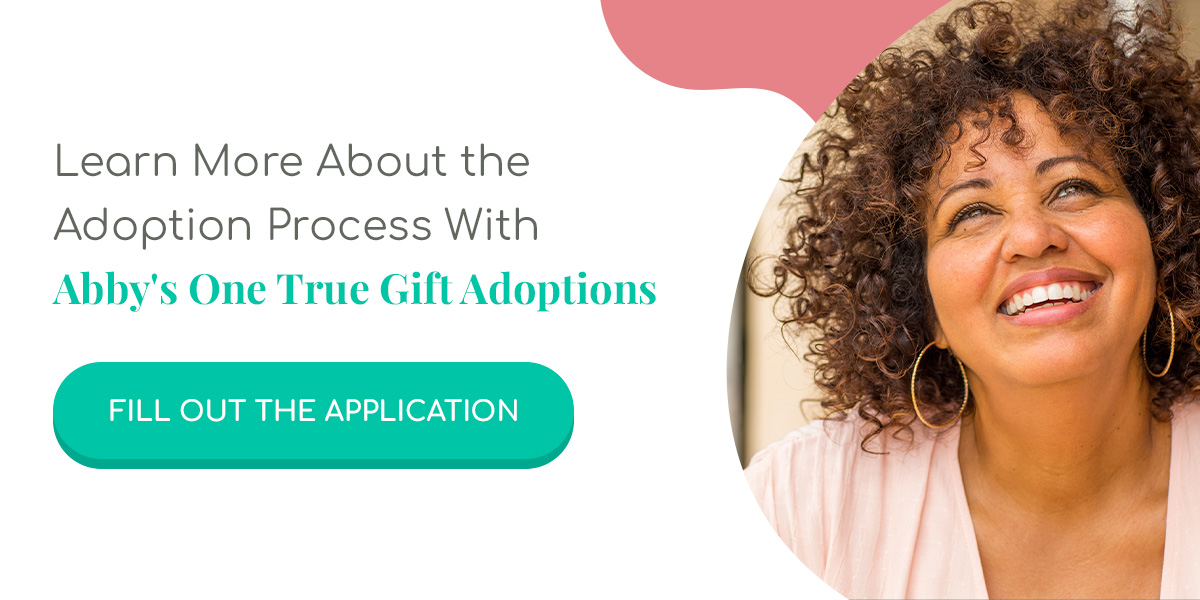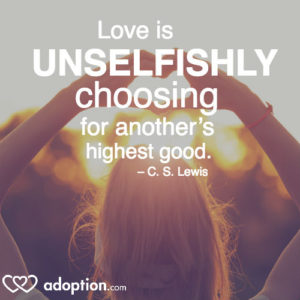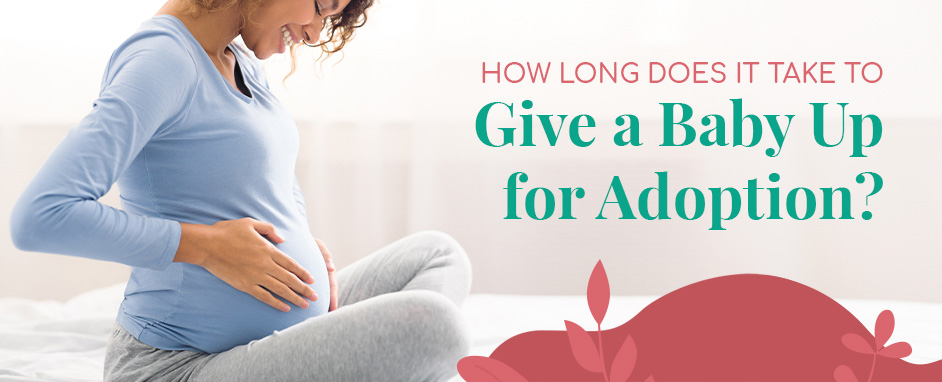May 10, 2023
Adoption Rights as a Birth Mother
If you become unexpectedly pregnant, you should know your options. There are many reasons why women pursue adoption. If you want to go forward with the adoption process, know that you can make an informed decision with the help of an adoption agency and legal counsel. Adoption can be a lengthy and emotional process, but it’s not one you have to go through alone. As a birth mother, you have plenty of legal rights both during and after you deliver your child.
The entire process is up to you, from creating your adoption plan and setting preferences for the adoptive parents to determining when you want to sign your relinquishment forms. You have a right and responsibility to be informed, and you likely have many questions. Read this guide to better understand your legal rights if you’re considering adoption.
Choosing Adoption
There are many reasons why birth parents and birth mothers choose adoption. You may not be financially or emotionally ready to care for a child or feel that your baby will have a better life with a family who is willing and able to care for them. You may not wish to have children. Whatever the reason, the decision is entirely personal and valid.
While it’s not always an easy choice, adoption can provide birth mothers with the knowledge and peace that their child is well-taken care of by a loving, supportive family.
If you’re leaning toward choosing adoption for your child, it’s important to know your rights. The first thing you’ll need to consider is the type of adoption you want to do:
- Independent adoption: Also known as private adoption, this is where the birth parent selects the adoptive parents in a direct placement without the use of an agency. This type of adoption is usually chosen if the birth mother knows potential adoptive parents through friends, relatives or other networking means, such as social media. The birth parent will give their physical and legal custody of the child to the adoptive parents with the help of attorneys who will oversee the process. However, some states still require the use of an agency for legal procedures.
- Agency adoption: This type of adoption involves using a licensed adoption agency. In this situation, the agency manages the entire process throughout the pregnancy and after. When the child is born, the birth parent will give physical and legal custody to the agency, which will then give custody to the adoptive parents. This process generally takes several months as the agency must monitor the adoptive parents and consent to the adoption. In this scenario, the birth mother is usually allowed to choose the adoptive parents from a waiting list of qualified adoptive parents.
It’s entirely up to you to choose an adoption route. Only you know what’s best for you and your child. Keep in mind, though, that working with a licensed adoption agency often gives birth mothers more peace of mind knowing that the child is in the hands of a capable facility that can guide them through every step of the process.
Adoption Rights During Pregnancy
As a birth mother choosing adoption, it’s essential to know that you have plenty of legal protection throughout the duration of your pregnancy. In addition to your right to choose whether to have a private or agency adoption, here are the following adoption birth mother rights.
1. The Right to Create Your Own Adoption Plan
You have the right to create your own adoption plan. This plan should include your preferences for your adoptive family, such as their culture, religion, family size, parenting style and education.
2. The Right to Legal Representation
Adoption is a life-changing decision, so it’s critical to have an adoption attorney who can inform you of your parental rights before and after the adoption is complete. Most adoption agencies will provide you with legal representation to help you understand adoption law.
3. The Right to Change Your Mind
One pressing question you may have is, “Can you change your mind about adoption?” You have the legal right to change your mind at any point up until you sign the relinquishment and adoption paperwork. You can choose to parent your child no matter how far along in the adoption journey you are — even after you’ve met the adoptive parents or given birth — as long as you have not signed the papers.
4. The Right to Choose Your Child’s Adoptive Parents
You do not have to choose the first adoptive parents you come across in your adoption journey. With the help of an agency, you can carefully and patiently discuss your desires for an adoptive family and meet as many parents as you want before making a decision.
5. The Right to Choose When to Sign Paperwork
Though there are different adoption birth mother rights by state for consent, 33 states require a waiting period after birth before consent can be executed. The shortest waiting period is 24 hours, while the longest is 15 days. Remember, until you have signed this paperwork, you still maintain legal rights over your child.
6. The Right to Determine Your Relationship Post-Placement
During your pregnancy, you can decide how much contact you wish to have with the adoptive family when the adoption is complete. You can choose from closed, semi-open or open adoptions, which all vary in levels of communication. You also have the right to face-to-face visits with your child.
7. The Right to Have Some Living Expenses Paid For
Depending on your state’s adoption laws, you may be eligible to receive financial assistance for living and medical expenses during your pregnancy. These expenses may include rent, utilities, legal fees, food, transportation, maternity clothes, counseling, labor and delivery expenses, prenatal and postnatal doctor visits, ultrasounds, and additional care.
Adoption Rights After Birth
You have rights after you’ve given birth, too. For example, it’s common to wonder whether the birth mother can reclaim the adopted child. The answer is yes.
Some states have post-adoption laws that allow revocation periods where a birth mother can regain her parental rights. In some states, the revocation period is as long as 30 days. It can be a lengthy and difficult process, but it may be possible to revoke your consent for various reasons, including:
- Fraud
- Coercion
- Deceit
The revocation period gives the birth mother rights after adoption to ensure they are entirely sure about terminating their parental rights. However, it’s extremely important to note that once this revocation period is over, the adoptive parents will have full parental and legal rights over the child. Aside from revoking your consent, you also have a right to continued support. Remember that the adoption journey doesn’t end when you place your child in the hands of their adoptive parents.
Adoption can change the rest of your life, so speaking with a counselor or your licensed adoption agency afterward can help you cope with your emotions. Your licensed adoption agency may also put you in contact with social workers who can provide services during and after you sign your consent forms, such as post-adoption contact.
For example, if you decide to go forward with an open adoption, where the birth parent can contact and communicate with the adoptive parents and the adopted child, you may want to receive counseling to talk about your experience. While this is not required, it can certainly be useful as you navigate the challenging period after placement.
Other rights you have after adoption include:
- The right to hold your child: Some movies and TV shows may falsely represent an adoptive child being taken away from the birth mother as soon as she gives birth, but this is not true. The birth mother has the right to hold and carry her child for as long as she wishes until she signs the relinquishment forms. You may also choose not to hold or see your child at all before they are placed if you wish.
- The right to contact the adoptive parents: If you have a semi-open or open adoption, you may be legally allowed to contact the adoptive parents, know where they live, exchange calls and texts, and see them and your child in person. This all depends on what you are comfortable with.
- The right to enlist in a parent registry: If you choose a closed adoption, you and the adoptive parents will not have any contact, and they may not even know your identity. However, you can still enter your name on a voluntary parent registry, which allows children to search for their biological parents if they wish later in life. Registering your identity will make it possible for your child to find you.
Learn More About the Adoption Process With Abby’s One True Gift Adoptions
Placing your child up for adoption can be challenging and emotional. With the right adoption agency, you will have full support throughout the entire process. Abby’s One True Gift Adoptions is a full-service and licensed adoption agency that helps birth mothers find the right adoptive parents and feel comfortable and confident in their choice.
We offer home study, post-placement services, legal representation and counseling services to make the process as smooth and accommodating as possible. It’s our goal to help you feel cared for and understand your legal rights. With Abby’s, you can fill out a 10-minute online application to learn more about the adoption process at no charge until your adoption plan is initiated. Reach out to our dedicated birth mother hotline any time at 866-973-2834.





